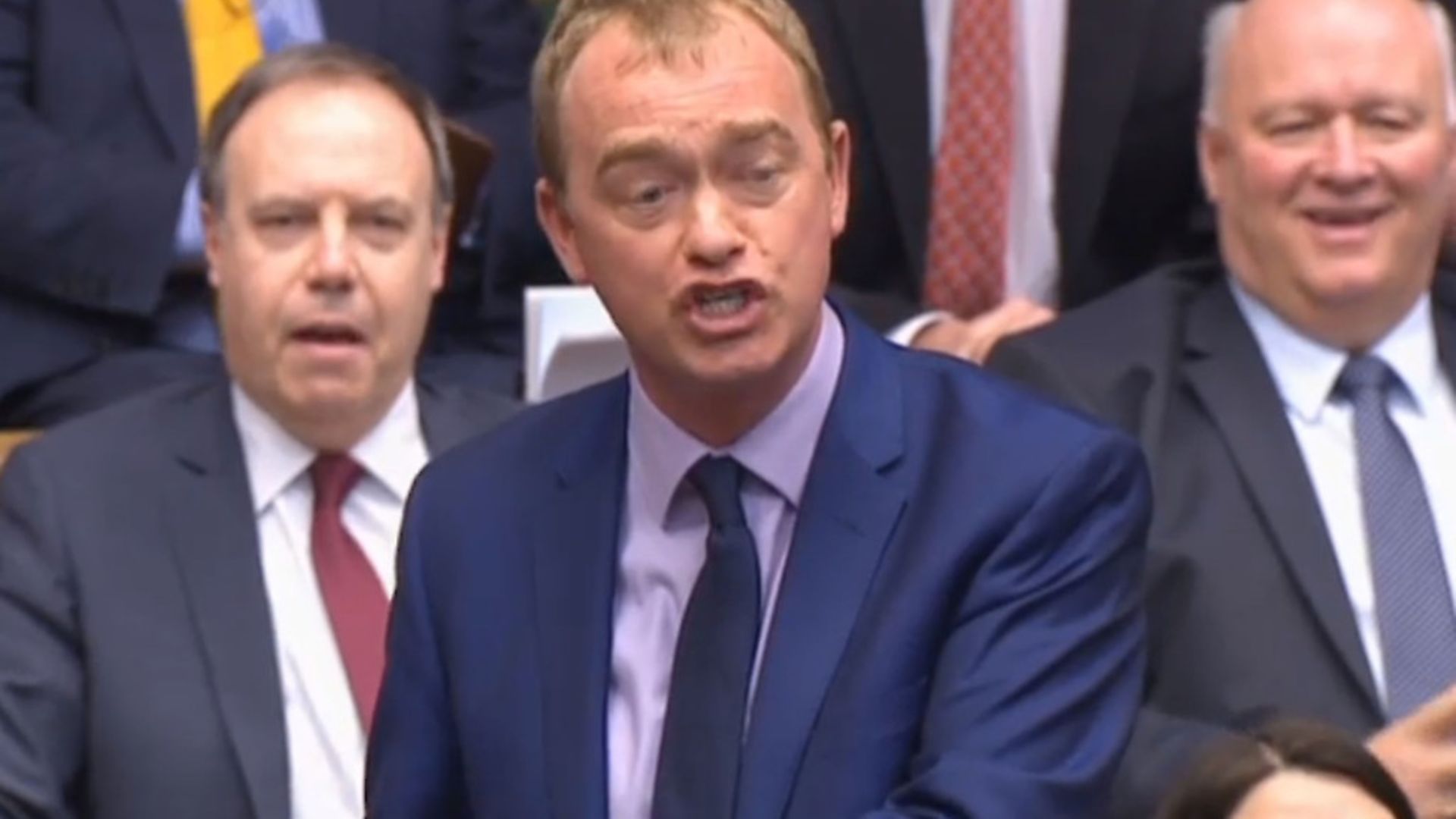
Theresa May has been attacked for hinting the UK and Europe’s security partnership could be damaged if Brexit talks fail
Liberal Democrat leader Tim Farron has called Theresa May’s threat that security co-operation could be weakened if Brexit negotiations stall ‘utterly scandalous’.
The Prime Minister put the prospect of security on the table in a warning to European Union leaders about the high stakes of negotiations.
She said the ‘abhorrent’ Westminster terror attack reinforced the need for the ‘closest’ links between police and security agencies across the European Union.
But in her letter formally starting the Brexit process, May warned that a failure to reach an agreement with the EU on the terms of the UK’s withdrawal ‘would mean our co-operation in the fight against crime and terrorism would be weakened’.
Farron said: ‘This letter is a blatant threat. Security cooperation has been lumped together with trade. Utterly scandalous.’
The UK has highly regarded intelligence agencies and is one of the main military powers in Europe, meaning its cooperation on security issues is valued in the EU.
To underline that point, the letter sent to European Council president Donald Tusk formally notifying him of the UK’s intention to leave the EU under the terms of Article 50 contains 11 references to security.
Explicitly linking security and economic cooperation, May said she wanted the terms of the future relationship with the EU agreed alongside the terms of the so-called ‘divorce’ from Brussels, within the two-year time Article 50 timeframe.
May told Tusk: ‘The United Kingdom wants to agree with the European Union a deep and special partnership that takes in both economic and security cooperation.
‘To achieve this, we believe it is necessary to agree the terms of our future partnership alongside those of our withdrawal from the EU.
‘If, however, we leave the European Union without an agreement, the default position is that we would have to trade on World Trade Organisation terms.
‘In security terms, a failure to reach agreement would mean our cooperation in the fight against crime and terrorism would be weakened. In this kind of scenario, both the United Kingdom and the European Union would of course cope with the change, but it is not the outcome that either side should seek.
‘We must therefore work hard to avoid that outcome.
‘Europe’s security is more fragile today than at any time since the end of the Cold War. Weakening our cooperation for the prosperity and protection of our citizens would be a costly mistake.’
Responding to May’s Article 50 statement Farron said: ‘I believe the Prime Minister is twisting the will of the people, leaping into the abyss without any idea of where our country will end up.
‘Theresa May has chosen the hardest and most divisive form of Brexit, choosing to take us out of the Single Market before she has even tried to negotiate.
‘Membership of the Single Market was not on the ballot paper last June, yet without a mandate she has chosen to rip Britain, our businesses and our people out of the world’s biggest market.
‘It is still possible for the British people to stop a hard Brexit and keep us in the Single Market. And if they want, it is still possible for the British people to choose to remain in the European Union.
‘Democracy didn’t end on 23rd of June – and it hasn’t ended today either. The people can have their say over what comes next.’
The director general of the Institute of Directors Stephen Martin called for a ‘smooth Brexit’, saying ministers’ focus in upcoming negotiations must be maintaining tariff-free trade and minimising delays at customs for Britain’s exporters, while allowing them to bring in the overseas expertise they need.
‘Ministers must roll up their sleeves and focus on getting a good deal for Britain in the tough negotiations ahead,’ said Mr Martin.
‘Success means listening to business on the vital priorities of maintaining tariff-free trade, minimising customs red-tape and keeping the bureaucratic hurdles to bringing in necessary skills as low as possible.
‘Business leaders are optimists by nature, but they are now facing substantial change, with the UK leaving both the EU single market and the customs union.
‘Maintaining confidence over the next few years will be key, and that means the Government must prioritise a smooth Brexit, with the terms of the withdrawal deal and our new trading arrangement both agreed before we walk through the exit door.’









